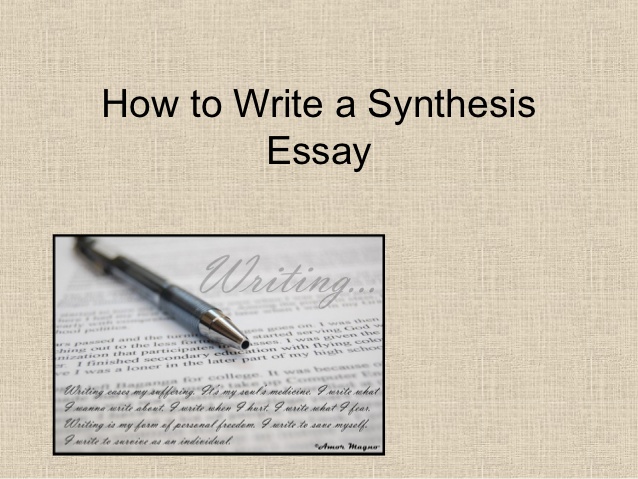
Composing an essay is an amazingly valuable practice since it permits the writer to figure out how to obviously and effectively formulate considerations, structure data, utilize essential ideas, feature causation, represent the experience in applicable examples, and validate his/her decisions. Students are often faced with the need to write an essay, but not everyone succeeds and not everyone has time for this.
In this case, writing help from professionals is a good option, so feel is free to visit gpalabs.com. However, given that the writing skills of a synthesis essay can come in handy at any time in your life, we have put together a number of important components to consider when writing.
Length

According to bestessayhelp.com, one of the most constantly observed patterns of a successful essay is the relationship between scores and length. As the grade decreases, you can see increasingly shorter papers. In fact, long essays are no better for their short counterparts. There is no sense and practical value in repeating the same idea to fill an essay or using a huge number of words to describe simple things. The most important thing is to be thorough. High graded essays to describe the topic thoroughly, and this requires a certain length. Regardless of your abilities and genius, you cannot write an essay without deep thoughts, say, at least in two or three paragraphs. Therefore, reveal yourself as much as possible and state worthwhile thoughts. Describe the topic as comprehensively as the limit allows you to.
Organization

It is always wonderful to facilitate the work of the reader. Successful essays achieve this with the help of the proper organization, as they are often very correctly constructed in two ways – one slightly superficial (but still important), and the second deeper. A superficial element of an organization is the use of basic structural features, such as introduction, body, and conclusion. In general, high graded essays should not be attributed to particularly long and chaotic works, where there is a continuous stream of thoughts. There should be a clear introduction that introduces the discussion topics and presents what the author himself thinks about it; the main part, which supports the author’s point of view; and a conclusion that sums it up.
John from Research Prospect suggests that the second, deeper, element of the organization is a logical sequence of thoughts. A successful essay is characterized by a smooth transition from one paragraph to another, and thoughts are constructed in ascending order in a logical progression. The examples are given in the order of the arguments and do not seem unsystematic. The text has a clear beginning, middle, and end, and not just interchangeable thoughts “stuck together”. Try to gather your thoughts first, and then build these ideas in well-organized paragraphs.
Competent and Error-Free Writing

This is, after all, an essay and your score depends on how well you write it. However, this is less important than many dares to believe. This section is called Analytical Writing Assessment, but the emphasis is more on the analytical part than on the writing part. The professor, as a rule, tests your thinking skills, not your writing, so don’t really worry about the mastery of rhetoric, the sense of pace or the harmony of syllables as your sentences reach the ears of readers. Most successful essays in this regard do not stand up to criticism and are forced to put up with their prosaism. Of course, try as you can, but do not waste time on significant transcriptions. Simplicity is the key to success if you avoid mistakes.
Specific and Relevant Examples
Abstraction and generalization destroy the real work in the bud. Successful essays earn their points with the help of special, highly detailed and expertly selected examples that illustrate the author’s thoughts. It is very easy to make statements, but in order to give them credibility, it’s worth adding a few examples, otherwise, it is akin to the groundless conversation. You should provide relevant examples in order to convey your thoughts, rather than lengthy generalizations of abstractions. However, the method of giving examples is also important. The main mistake that is not characteristic of a great essay is the excessive detailing of the example itself without a proper explanation of how this will support your point of view. Remember that an example is not an end in itself, but a way to reinforce your thought. Thus, provide moderate detail that will help the reader understand how it fits with your position.
Clear Point of View

This is an important component of all essays, however, it often becomes a problem for synthesis Essay, which gives enough room for maneuver. You can take any position regarding a problem that appeals to you because there are no right answers; you can agree with the claim, protest it or put forward the third argument; you may question the statements made by the claim; to some extent, you can agree and to some not. You can have any point of view, but it should be. A good essay should already contain the thesis in the first paragraph. An uncertain position here will not work, and the lack of one’s own opinion leads to reflection: “Why are you telling me this? Where does this come from? What is it all about?”. Writing is just thinking on paper, but thinking should foreshadow everything else. You must understand what you want to convey, and then write about it.
So, to summarize: to write a good essay you need to be concise, consistent and give those arguments that you can prove. Details – decorate any business, so do not hesitate to show off the facts if you have them somewhere in the mind. And also choose the writing style that will be most organic for a given genre. If you adhere to these rules, then at the end you can get a holistic work that will be interesting to readers. A fairly simple structure allows you to express thoughts in a free form, but at the same time not to lose the integrity that is necessary for any paper.








